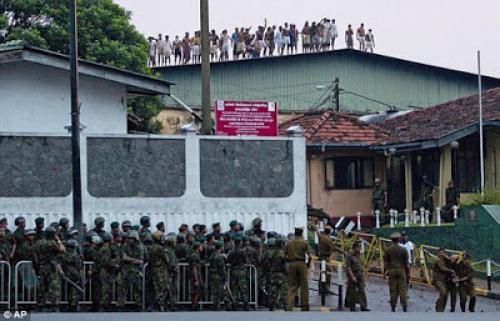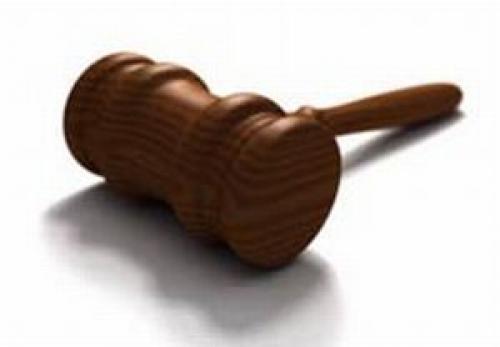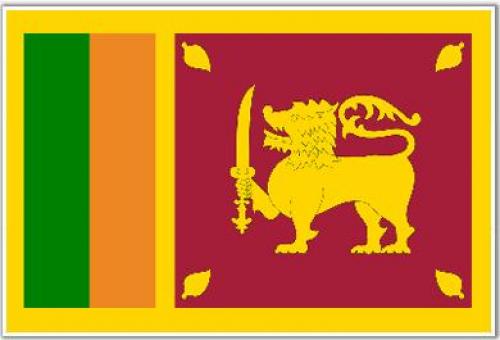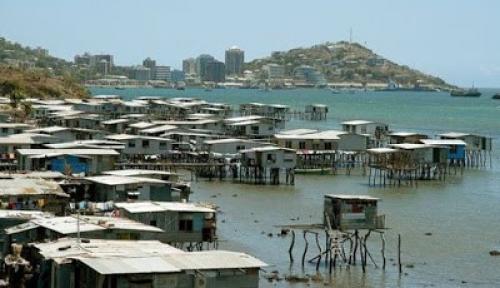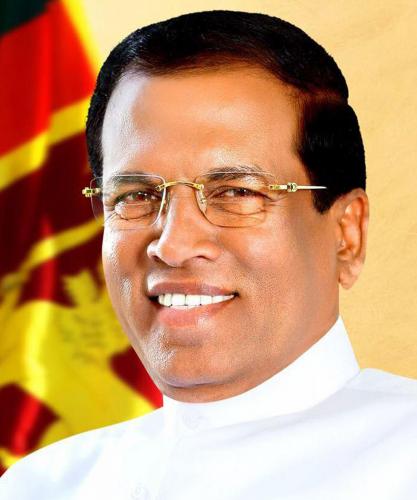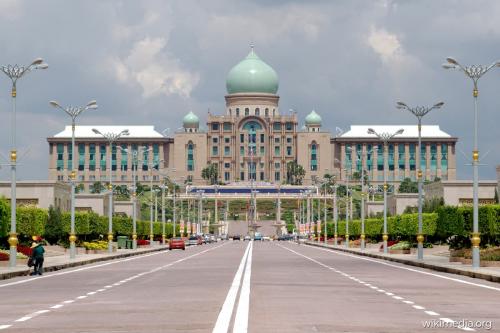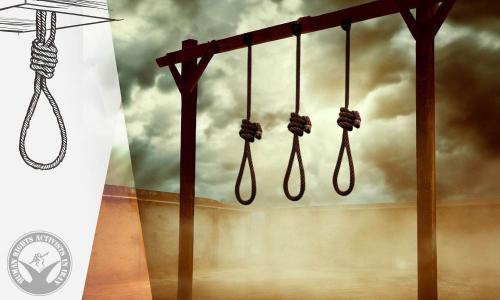international treaties on human rights and the death penalty:International Covenant on Civil and Political Rights
1st Optional Protocol to the Covenant
Convention on the Rights of the Child
Convention Against Torture and Other Cruel, Inhuman or Degrading Treatment or Punishment
situation:Capital crimes are: murder, causing an innocent person to be executed by bearing false witness, offences against the State, economic offences, drug offences and arms trading.
The island’s history of executions goes back to when Sri Lanka was the British colony known as Ceylon. The first hanging was held on 11 February 1884, at Welikada Prison. During that time, a total of 1,868 men and women were executed.
The last execution was carried out on, 23 June 1976 – nearly 20 years after Sri Lanka achieved independence – when Jayasinghe Chandradasa, a 27-year-old farmer convicted of murder, was hanged to death.
In 2016, according to Amnesty International, at least 79 people were sentenced to death.
In 2015, according to Amnesty International, at least 51 people were sentenced to death, mostly for murder and at least 3 for drug-related offences.
As of April 2016, there were 1,004 death row prisoners, 28 women, according to the Commissioner General of Prisons, Thushara Upuldeniya on a total of 16,000 prisoners.
According to the Prisons Act, condemned prisoners are not allowed to mingle with the convicted prisoners, and have to be kept in isolation. They have a tiny cell and a small corridor leading to their cells away from their fellow prisoners, and they do not even see or hear each other. The only privilege they have is to walk along the corridors of their cells.
After searching for an executioner for three years, in October 2015, Sri Lanka’s Prison Department Sri Lanka said it had hired two new executioners to replace the previous hangman. It had appointed the latest hangman in March 2014. However, the hangman selected for the job got distressed on seeing the gallows for the first time and resigned from the post. Two other hangmen hired in 2013 failed to show up for work.
Many attempts have been made by various governments to resume executions, but with no result due to large-scale protests that occurred in the country.
On 14 September 2015, Foreign Minister Mangala Samaraweera in his address to the UN Human Rights Council in Geneva stated that Sri Lanka would not implement the capital punishment. However, on 18 September, President Maithripala Sirisena, told a meeting in Galle that he would implement capital punishment if parliament approved. Though the penalty can be imposed via his executive powers, “I thought that the better option was debate in the parliament,” he said. “As a leader who respects moral principles, I will pay strict attention to the demand of the people to enforce the death penalty.”
On 6 October 2015, Minister of Justice Wijeyadasa Rajapaksha told the parliament that Sri Lanka will not implement the death penalty temporarily as the country has decided to vote in favor of the UN resolution for a moratorium on the use of the death penalty when the vote is taken at the UN General Assembly. Emphasizing that more than 100 countries have abolished the death penalty, the Minister told the parliament that especially in democratic countries punishments are aimed at correction and rehabilitation. The world opinion with regard to the capital punishment is in favor of not implementing it, he added.
On 4 January 2016, the Human Rights Commission of Sri Lanka (HRCSL) in a letter to the President recommended the abolition of the death penalty in Sri Lanka. The Commission, set up by the Government in 1996 to promote and protect human rights in the country, in the letter states that death penalty should be abolished in keeping with Sri Lanka's commitment to a more humane society consonant with human rights, principles and values.
On 22 June 2016, delivering his address at Sixth World Congress Against the Death Penalty in Oslo, Sri Lanka's Foreign Affairs Minister Mangala Samaraweera said the vast majority of his colleagues in Parliament find the death penalty morally repugnant and are aware of its ineffectiveness but they fear the knee-jerk reaction of uninformed public opinion. "Therefore, the common challenge facing us today is persuading our respective people and perhaps even more importantly having the collective courage to lead by acting," Minister Samaraweera said. Minister Samaraweera confirmed that Sri Lanka's Minister of Justice had informed Parliament that Sri Lanka would return to its traditional position of voting in favour of the UN Resolution on a Death Penalty Moratorium as it did in 2007, 2008 and 2010 and, more importantly, continuing the four decades long de facto moratorium. He said that abolishing the death penalty requires persuasion and resolve but above all it requires leadership – the collective leadership of legislators, activists, editors, academics and judges. "As momentum towards critical mass develops, I am confident that the coming years will see the death of the death penalty in our region," the Minister concluded.
Commutation of the death penalty or suspension of executions President Maithripala Sirisena has commuted 187 death sentences to life imprisonment since he assumed office in January 2015. President Sirisena gave such concession to 34 death row inmates in December 2015. Another batch of 83 such prisoners got their sentence commuted to life on 22 April 2016, and 70 more prisoners had their sentences commuted on 27 May 2016. The death sentences were commuted on recommendations made by an expert committee established by the previous government in October 2013 and headed by retired Supreme Court judge Nimal E. Dissanayake. The committee included Secretary to the Justice Ministry, additional Solicitor General and Prisons Commissioner. The committee had inquired into cases of nearly 400 convicts out of nearly 1,200 on death row and recommended the commutation of their death sentence. Some prisoners on death row have served between 20 to 30 years inside their cells.
The death penalty on womenIn Sri Lanka, at the end of April 2016, there were 28 women on death row out of a total of 1,004 people sentenced to death, according to Thushara Upuldeniya, Commissionair for prisons and port parole of the Prison Department.
United Nations In November 2012, in its response to the recommendations received under the Universal Periodic Review of the UN Human Rights Council, Sri Lanka rejected those to take immediate steps towards the abolition of the death penalty in law.
On 19 December 2016, Sri Lanka voted in favor of the Resolution on a Moratorium on the Use of the Death Penalty at the UN General Assembly, as in 2010, 2008 and 2007. In 2014 and 2012 it abstained.


